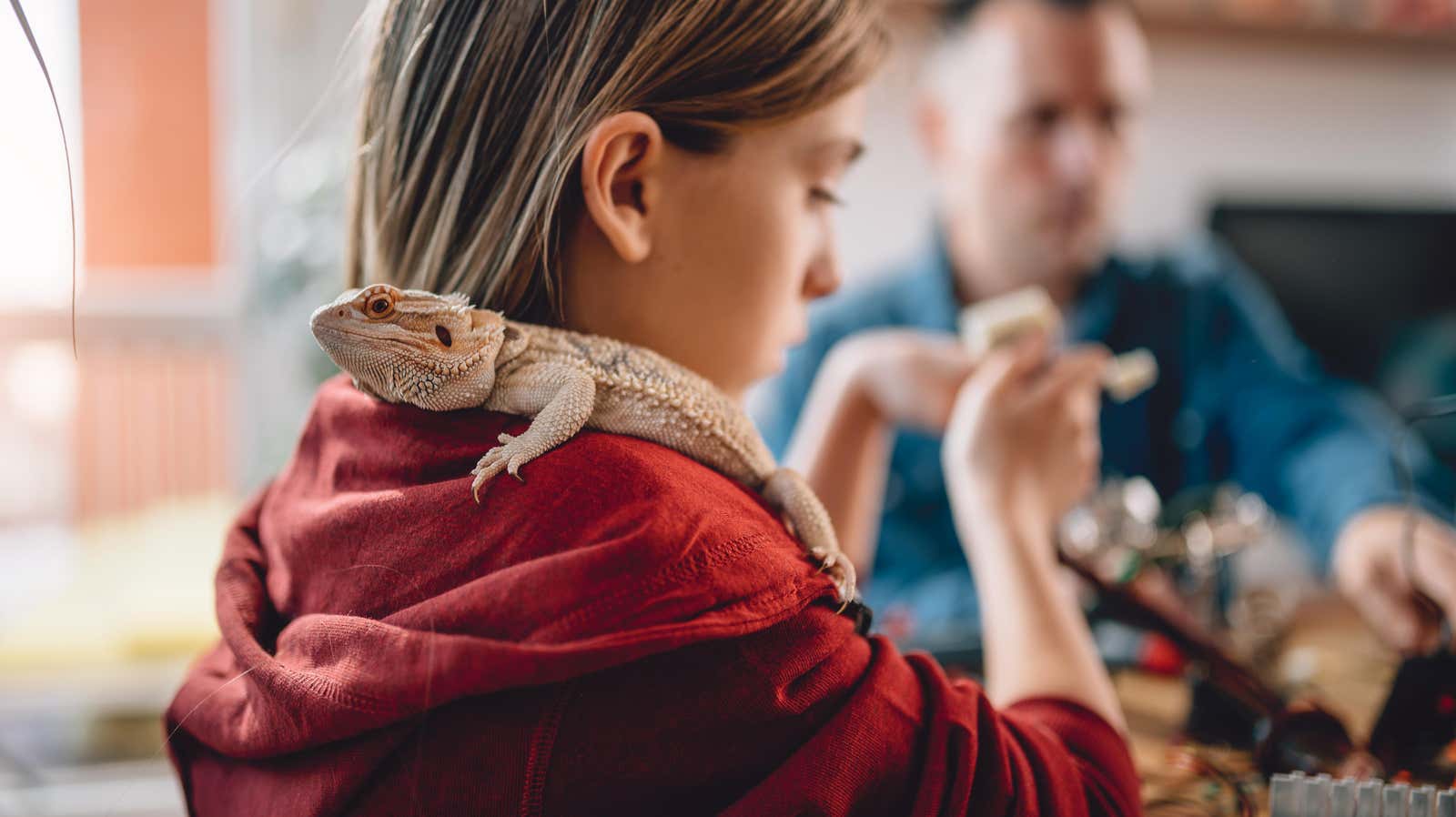Don’t Let Kids Kiss Your Pet Lizard

Lizards are truly underrated pets. In particular, bearded dragons are smart, friendly, and fun to care for, so it’s no wonder they are popular pets. However, one warning: any pet reptile can carry salmonella bacteria, and the CDC is warning of a recent outbreak in bearded dragons that has affected children.
Reptiles can carry salmonella
It’s supposed to be Reptile Care 101, but a lot of people seem to have missed the message – or they know, but are a bit casual about the safety protocol. Reptiles and amphibians can sometimes carry Salmonella as part of the normal “good” bacteria in their gut. This means that you can have a healthy pet that can make you sick.
From time to time we hear about these outbreaks. Turtles are such a common carrier of bacteria that baby turtles can’t be sold as pets in the US (which is probably good news for turtles, as most turtles grow bigger than people think and are often abandoned when they get too big). to be nice). You probably remember that last year the CDC asked us to stop kissing backyard chickens , which can also carry salmonella . Frogs, iguanas, snakes, and other domestic reptiles and amphibians can also be carriers.
Salmonella disease is most common in people under the age of 5 or older than 65, and symptoms include fever, diarrhea, and vomiting, which can be severe enough that you can’t hold on to fluids. The CDC advises that you seek medical attention if you or your child has any of these symptoms or signs of dehydration, including insufficient urination or dizziness when standing up.
How to Prevent a Salmonella Infection from Your Pet Reptile
Do you have to give up your favorite bearded one? Not at all, but you should be aware of what is considered safe handling.
If you are a healthy adult, the main thing you need to know is to wash your hands after contact with your pet or after performing pet care tasks such as feeding or cleaning his enclosure. (In a pinch, hand sanitizer with at least 60% alcohol is fine.) You should wash your hands after handling a pet or its belongings, and before eating or drinking.
Salmonella bacteria can also be carried on surfaces, so don’t bring your pet into the kitchen and remember to wash your hands after touching things your pet has touched.
Pet reptiles are not for children under 5 years old
As cute as it is to see your child snuggle up to a pet lizard, the CDC recommends that children under 5 not touch pet reptiles at all. It’s not just because young children put everything in their mouths, although that’s part of the problem.
The real problem is that children are at greater risk of serious salmonella disease than healthy adults. The CDC notes that in a recent outbreak involving bearded dragons, about half of those affected were under 1 year of age. (So far, 23 people have fallen ill and 8 have been hospitalized.)
This does not mean that everyone allowed their child to drool right on the lizard; remember, bacteria can be transmitted through surfaces. Maybe you hear your baby crying while you take care of your beard, so you put him back in the aquarium to go pick up your baby. The US Centers for Disease Control and Prevention (CDC) recommends that you always wash your hands between holding or caring for a reptile and holding or caring for a baby.
Similarly, you should avoid situations where a pet is roaming the same room where a child is playing, and you definitely don’t want to wash the aquarium, food bowls, or other equipment in the kitchen sink. Washing outdoors or in a laundry tub will better prevent germs from entering living spaces where a child might encounter them.
In addition to children, the elderly or those who are immunocompromised may also be at greater risk of becoming ill from a salmonella-infected pet. Unfortunately, according to the Association of Reptile and Amphibian Veterinarians , it is not possible to accurately test pet reptiles for Salmonella (they may test negative but still carry the bacteria) or reliably “cure” them for it.